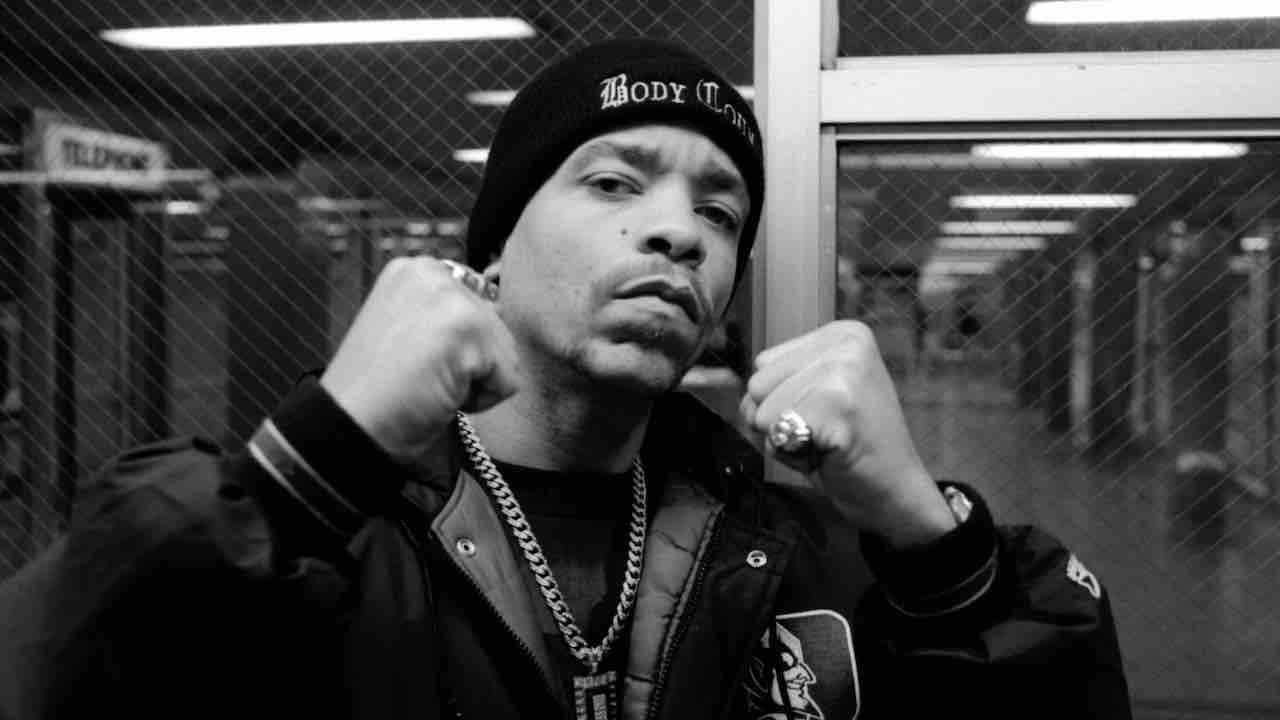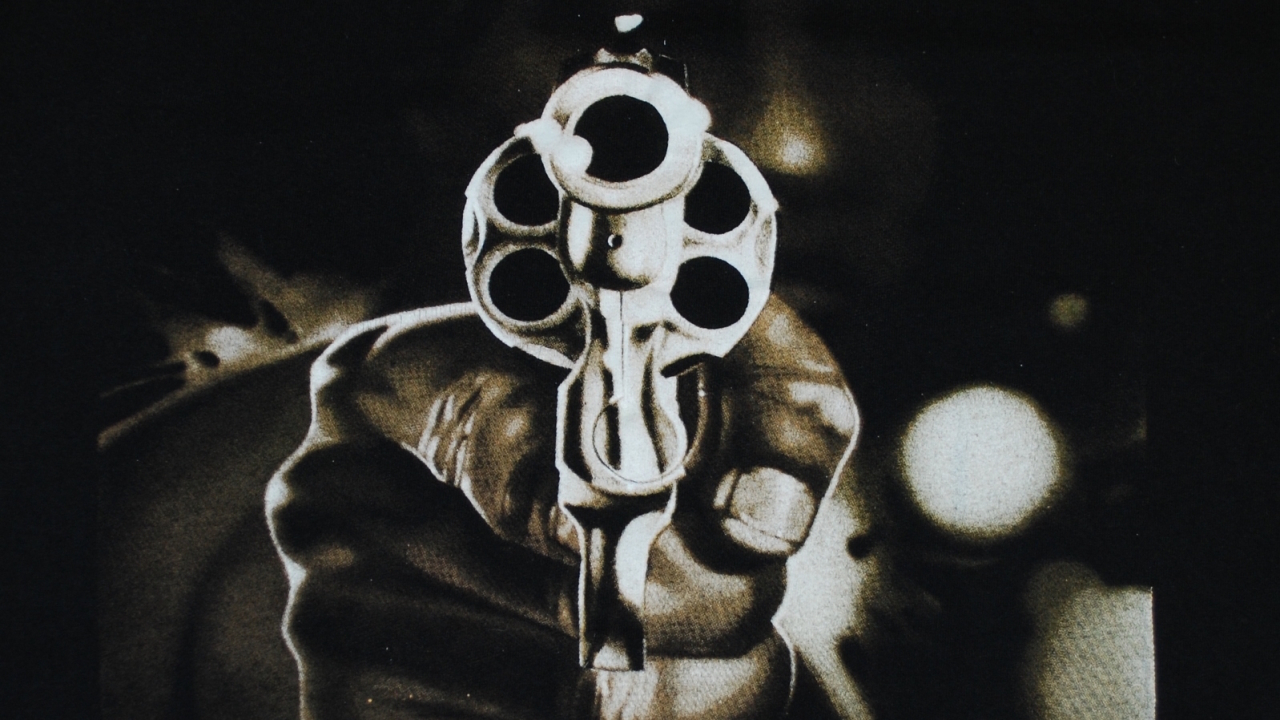Back in 1991, West Coast gangsta rap pioneer Ice-T was making his fourth album, O.G. Original Gangster, when he came up with a wicked idea: to do a metal song with some buddies of his. The song was called Body Count, and they enjoyed doing it so much they thought it’d be a laugh to form a band with the same name and play gigs around LA.
A year later, after just one album, they were one of the most infamous bands in the world, authors of Cop Killer, the most talked about song of the decade, blamed for the deaths of a number of police officers amid a shit-storm of controversy that, ultimately, derailed the career of one of the biggest rap artists of the time.
“It was pretty rough for a while,” Ice says of those times, between shoots for cop show Law And Order: Special Victims Unit in which he plays a detective. “When you’re in the entertainment business they can shut down all of your avenues of revenue for a while. You can’t work, you can’t do concerts – it made things real complicated for a while. But, at the end of the day, I’m on TV playing a cop, so fuck ’em. They’ll never understand what that music is expressing.”
In 1991, rock and metal were in a weird place. The LA scene, with its big hair and spandex, was looking more and more bloated and ridiculous. Rap had already attracted metalheads and rock fans looking for music with more to offer than the likes of Poison and Mötley Crüe.
In comparison, hip-hop outfits like N.W.A. and Public Enemy were making real outlaw music: angry lyrics rapped over pounding bass, big beats and screaming sirens made hip-hop sound edgier and more visceral than anything the rock world was producing – with the exception of thrash metal. So when Anthrax joined up with Public Enemy for Bring The Noise in 1991, it was a perfect mix of two hardcore genres. In this climate, Body Count made perfect sense.
- Ice-T: 10 albums that changed my life
- Body Count: Killing In The Game
- The 10 best hip hop albums to own on vinyl
- Jason Aalon Butler: Rock has so much in common with hip hop
“I grew up in the days of Black Sabbath and Dio and all that kind of stuff,” Ice says. “And I liked it. I liked the energy and I liked the fact that it was hardcore: ‘This shit is crazy’. They’re just trying to scare the shit out of people, right? So we asked the question: what’s more scary than a fucking gun in your face? The Devil? Fuck that – how about a .357 [Magnum]? And that’s why in the Body Count album, when you open it up, all of sudden someone’s pointing a gun at ya.
"We could have dealt with sacrifices and all that shit, but [we said] let’s deal with real fear. My whole thing was that when Body Count hits the stage we take you in to the hood; we take you into our environment, our fears, our drama. And fortunately a lot of people understood it.”
It wasn’t just about subverting metal or getting cheap laughs. Ice’s strategy – which he later dubbed ‘the Home Invasion’ – was to get his message to white youths. “That’s really what I’ve always been about,” he admits. “It’s like, if you’re my fan, I just want you to understand me. I’m not trying to tell anybody what’s right or wrong, I’m just saying: ‘Take a good look at me – I might be like you.’ So then when dad comes home and says ‘n*****s’ or whatever, they defend them. They’re like: ‘Wait a minute. I fucking love Ice-T. I don’t know what the fuck you’re talking about!’
"That’s the best way I felt to fight racism – to go to the white kids and say: ‘Hey, we really got a problem. But what the fuck did I do?’ And in time, things’ll slowly change. They won’t change overnight, but I think they’re getting better.”
As a tactic, the Home Invasion worked. The ‘90s saw an explosion in rap metal; rock bands used DJs and samples; lyrical focus switched from being about ‘girls, girls, girls’ and ‘unskinny bop-bop’s to darker, more street-wise matters.
“I think it made it okay for black kids to do rock,” Ice offers, “but it also made it okay for white kids to add a little urban flavour to rock. It was a two-way street. I mean, one of the first bands we took on tour with us was Rage Against The Machine. We took them out, opening for us, cos I just knew that Zack [de la Rocha] was crazy. It was like, ‘This shit is crazy! This shit is dope!’”
The Body Count album came out in March 1992 to very little fanfare or controversy. A weird mix of thrash, punk and doomy Sabbath-style riffing, it was sometimes hard to tell if it was a piss-take of the metal genre (“I was never out to make fun of it or anything,” Ice says today, “I was just like, ‘Yo, I’m gonna express myself’). The furore that eventually surrounded Cop Killer overshadowed the fact that this was one seriously funny record.
After the heavily PC and po-faced 1980s, it was outrageous to hear Ice blame his dick for his indiscretions in Evil Dick (‘Evil dick likes warm, wet places/Evil dick don’t care about faces’), to hear the OTT revenge fantasy of KKK Bitch (in which Ice shags the daughter of a Ku Klux Klan grand wizard), or just revel in some quality swearing (opening track Body Count’s In The House consists of the title repeated over and over with Ice adding the occasional and hilarious ‘Yeah, muthafuckaaaaa!’ or ‘Awwwwww shiit!’).
The album has its share of angry and socially aware lyrics, but mostly it’s just a hoot.
“That’s the whole thing with Ice-T, man,” he says. “I think motherfuckers take life a little bit too seriously. I’m the kind of person that, if I know that I’ve offended you, and I know you’re easily offended, I’m gonna fuck with you more. I mean, there are some things that are really offensive and are wrong, but sometimes I’d be like, ‘You know what? I’m just gonna fuck with them.’ I just think people are just too soft as a whole. There’s real shit out there that you should be dealing with, not getting offended about me saying a word.
“But KKK Bitch was real. We toured all through the bible belt, and there’d be white girls backstage. They’d wanna hang out, and we’d be like, ‘Well, what’s up with your boyfriend?’ ‘He doesn’t like black people.’ ‘How about your father?’ ‘Oh, he’s in the Klan.’ I’m like, ‘You know, it’s ironic that you guys are so excited to be with us but your boyfriend hates black people and your father’s in the Klan.’ A girl can be into the total opposite of what her man is into, and I’m like, ‘Wow! There’s a song here!’ It’s real. But that’s what makes it funny.”
The song KKK Bitch also features the immortal lines ‘Body Count loves everybody. We love Mexican girls, black girls, oriental girls, it really don’t matter. If you from Mars and you got a pussy, we will fuck you.’
Now that’s equal opportunities.

“You know where that comes from?” Ice laughs. “You ever seen the movie Blue Velvet? You know that bit where Dennis Hopper says: “I’ll fuck anything that moves!”? It was that whole attitude. We were making a record and going, ‘Yo – we do not give a fuck.’
"It’s like, right now I tell people I’m with my wife because she treats me good. If she’d been a Martian and she treated me good, I’d be having some green pussy. I’m not choosing a race, I’m rolling with whoever’s handling the job correctly. [Pause] But it’s a weird way of breaking down racism. I’m equal opportunities. I think most guys are.”
If offending feminists and the extreme right wasn’t enough, a new storm was brewing. Two months after the album’s release, a predominantly white suburban jury acquitted four LAPD police officers who had been caught on video beating African-American Rodney King. The verdict led to riots across Los Angeles.
Shortly afterwards, a police pressure group called for a boycott of the record, claiming that the lyrics for Cop Killer incited violence against the police. Dedicated to the LAPD, the chorus runs: ‘Cop killer – it’s better you than me/Cop killer – fuck police brutality/Cop killer – I know your family’s grieving/Fuck ’em! Cos tonight we get even”.
Shareholders in Warner Brothers, who released the record, threatened to pull out of the company. Actor and National Rifle Association president Charlton Heston made an impassioned speech to the Warners shareholders meeting, calling for Body Count to be dropped from the label.
A former president of the National Association of the Chiefs of Police specifically blamed the song for the shooting of two Las Vegas police officers that July. Suddenly Body Count were at the centre of a debate on free speech and the First Amendment. Memorably, Ice-T pointed out that the song was written in character, adding: “If you believe that I’m a cop killer, you believe David Bowie is an astronaut." Others defended him by likening the song to Bob Marley’s I Shot The Sheriff.
How did it feel to be in the centre of a national controversy? “Unexpected and overdone,” he says. “But it was political. It was the political climate in the States at that time. It was time to attack music again, which they do every 10 years, and I had the most toxic record out.”
The controversy soured relations with Warner Brothers to the extent that Ice sanctioned a new version of the album with Cop Killer removed, before leaving the label for his next solo album.
His career never regained the same momentum. In the decade after Cop Killer he released only two rap albums, as well as two other Body Count albums, neither of which had the impact of their debut. Does he have any regrets over Cop Killer? Would he have done things differently if he could?
“Nah, not really,” he says. “I don’t regret it, because it was a song that was written at the right time: 1992, Rodney King, shit was fucked up in LA. And my record was made a year before the riots. So it was an historical thing. Would I do it today? Well, I don’t know. I don’t know that I’m really feeling the same emotion right at this moment. But at that time? That record needed to be done.”
Was the reaction worse because it was a rock song?
“I think there was a double standard. Yeah, they got mad because it crossed over to the white kids, but when they publicised against it they called it a rap record. In other words, when you say ‘rap’, that means ‘black’ and you’ll get more people behind it. Whereas if you say ‘rock’, some of the parents out there would be like, ‘Wait a minute. I like rock.’ So it was kind of a racist way of attacking it as a rap record. Cop Killer is not a rap record.”
In the years since Cop Killer and everything that surrounded it, Body Count drummer Beatmaster V died from leukaemia, bass player Mooseman was shot and killed in a drive-by shooting, and in 2004 rhythm guitarist D-Roc died from cancer. Now with right-hand man, guitarist Ernie C, and three new members, Body Count are back. But they will never escape from the shadow of Cop Killer. Does that song define them still?
“Well, it’s hard when you do a record that’s that prominent and big,” Ice says. “For the rest of Body Count’s life we’ll always close the show with that song. Y’know, I don’t know how you could make a record bigger than that. Shit, that motherfucking record stopped the world.”
Originally published in 2015

